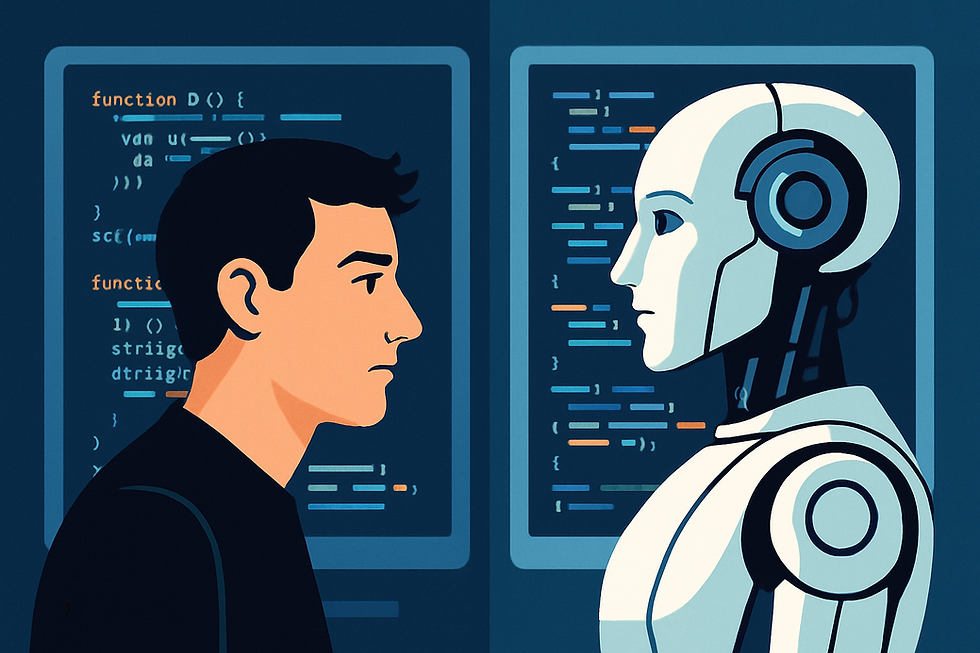Hyundai Shifts Autonomous Driving Strategy from LiDAR to Camera-Based Systems
- Mary

- Apr 8, 2025
- 3 min read
Hyundai Motor Company has made a significant strategic pivot in its autonomous driving development, effectively suspending its LiDAR-based projects since late last year in favor of camera-based systems. This strategic shift is being spearheaded by Song Chang-hyun, who serves as both the president of Hyundai and CEO of Forty2Dot, the company's camera autonomous driving technology subsidiary.

A Strategic Shift Toward Internal Technology Control
According to industry sources, President Song has emphasized the importance of technology internalization, stating that "a camera that enables end-to-end design is more suitable than LiDAR, which is highly dependent on foreign modules." This philosophy appears to be driving Hyundai's autonomous vehicle strategy going forward.
Forty2Dot, which specializes in autonomous transportation as a service (TaaS), was founded in 2019 and merged with Hyundai Motor Company in 2022. The subsidiary is majority-owned by Hyundai Motor Company (57%) and Kia Motors (38%), making it a critical in-house technology center for the automotive group.
The company recently unveiled "Atria AI," a Level 2+ camera-based autonomous driving system that utilizes eight cameras and one radar. This system is scheduled for demonstration in software-defined vehicles (SDVs) next year, with plans for mass production by the end of 2027.

The Surprising Economics of Camera vs. LiDAR Systems
Contrary to conventional wisdom that camera systems are more cost-effective than LiDAR, the reality may be more complex. While LiDAR was once prohibitively expensive at over $2,000 per unit, prices have dropped significantly, with Valeo's Scalar 3 now ranging from $500 to $800 per unit. Valeo, a European auto parts manufacturer, has been Hyundai's primary LiDAR supplier.
LiDAR technology offers precise three-dimensional spatial recognition, measuring both plane (x, y axis) and depth (z axis), providing high reliability in object identification and distance judgment.
By contrast, camera systems only process two-dimensional images, requiring advanced artificial intelligence algorithms to estimate depth. This necessitates sophisticated neural network models, massive datasets, and substantial computing infrastructure. Companies like Tesla have invested heavily in supercomputing resources like Dojo to support their camera-based Full Self-Driving (FSD) service.
For Hyundai to successfully implement camera-based autonomous vehicles at scale, significant investments in its hCloud infrastructure or Forty2Dot's AI capabilities will be necessary, potentially making the overall system more expensive than LiDAR-based alternatives.
Hyundai Autonomous Driving Strategy: Corporate Strategy and Future Outlook
Industry observers note that Forty2Dot's expansion within Hyundai's ecosystem is occurring through various forms of support, including personnel transfers from Hyundai's autonomous driving division. Some speculate that this strategy may be aimed at increasing Forty2Dot's corporate valuation, particularly if AI computing infrastructure investments boost the subsidiary's tangible assets.
Despite these efforts, Forty2Dot reportedly faces profitability challenges. Having attracted over 1 trillion won (approximately $750 million) in investment from Hyundai and Kia, CEO Song faces pressure to demonstrate financial viability. The recently released Atria AI and mobility operating system "Pleos" may represent critical initiatives for the subsidiary's future.
It's worth noting that this strategic shift does not appear to affect Hyundai's separate robotaxi initiatives with Waymo, which are reportedly being managed directly by CEO Jang Jae-hoon rather than President Song.
As automakers worldwide continue to refine their autonomous driving strategies, Hyundai's pivot toward camera-based systems represents a significant technological and strategic bet that prioritizes internal technology development over reliance on external suppliers. The coming years will reveal whether this approach delivers the technological independence and market advantages that Hyundai is seeking.



Comments